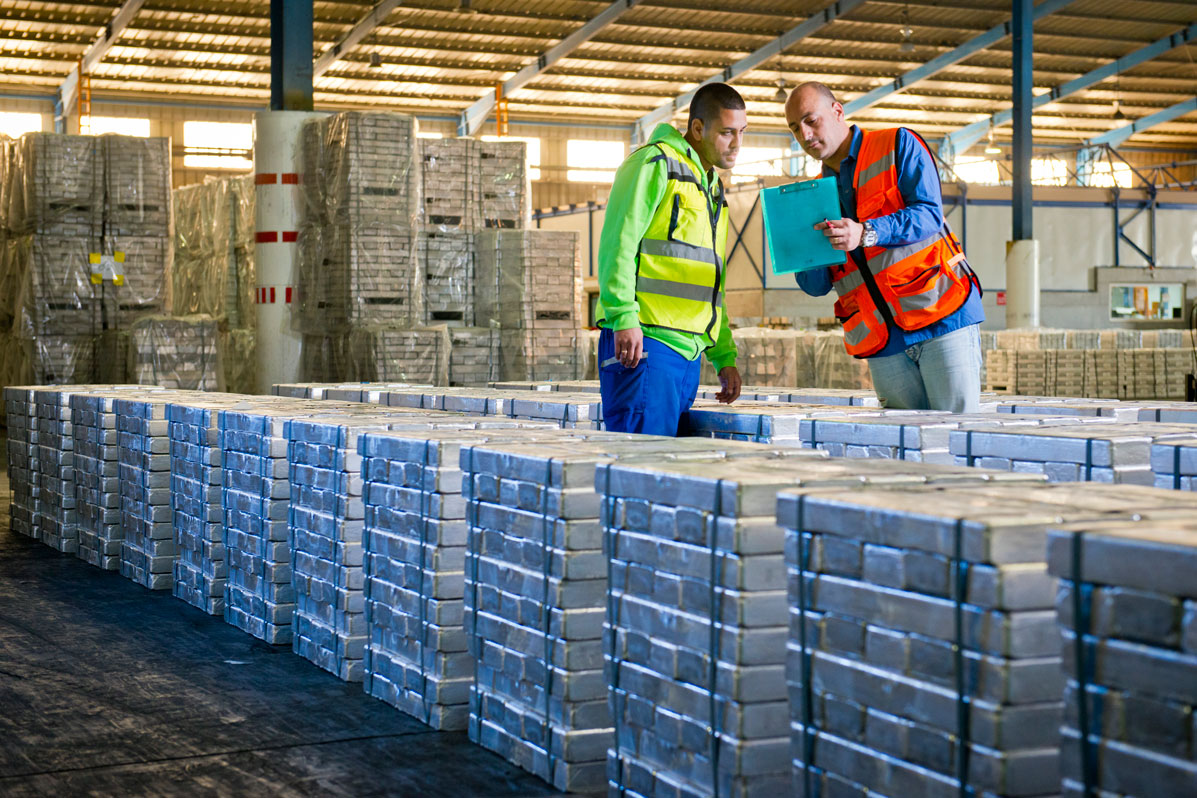About this report
ICL recognizes the importance of the periodic reporting process and of the transparency required in its activities. ICL’s Corporate Responsibility Report describes our approach to sustainability and the actions it has taken during 2017 to advance responsible and sustainable business practices. This is the eight successive year ICL has published a full GRI report. Following years of using the GRI G4 Guidelines, this is ICL’s first report using GRI Standards (Sustainability Reporting Standard). \
This is our first digital - fully accessible report.
As we progressed through the reporting process using the GRI framework, we are strengthening our data collecting and reporting practices, becoming more efficient in these systems throughout its operations. In all cases, data relates to the 2017 calendar year unless otherwise stated. Due to some major changes in the company and the data collection infrastructure available to us – data regarding 2018 is included as well. For most quantitative indicators, data from previous years is presented as a baseline for comparison. ICL’s previous report was for 2016 and was published in mid-2017.
The report covers all of ICL’s global operations. The quantitative information in this report relates to all ICL Divisions and Business Units. The report includes (among else) information about a significant joint venture (YPH). The joint venture with a Chinese company, YPH, was finalized at the end of 2015. Data regarding the YPH JV has been included since 2016, including in this report. This is a significant change and has caused changes in trends in several environmental KPI’s. A list of entities included in this report can be found in the Organizational Structure diagram – as found in ICL’s 2017 Annual Report (see “C. Organizational Structure”, page 116 or Note 27 – Group Entities).
Some significant changes have occurred during the reporting period with regard to its scope or boundaries. Several ICL sites have been sold and their data is not included in the 2017 report, but these sales have not had a significant impact on the scope.
During 2015 a strike broke out in the ICL Dead Sea and ICL Neot Hovav sites. For a few months, the workers of several major companies in ICL Israel were on strike and production almost ceased completely. This had an effect on a couple of the indicators regarding safety (such as the number of accidents) as well as environmental performance. The change in some of the trends in 2016-17 is due to the return to normal production rates following the 2015 strike and the addition of YPH JV data.
Information was collected internally by the Company’s headquarters, relevant departments, with expertise related to the environment, human resources, safety, CR and more. Environment and social data was collected from dozens of ICL’s sites located worldwide. A major part of the quantitative data was collected using the ICL sustainability IT reporting system- SoFi. We continue our attempts to further deepen our reporting transparency and expand the data scope regarding environment, safety, complaints and other fields.
This report was written in accordance with GRI Standards ‘in accordance’ option Core, and reports are in line with the principles for defining report content and quality. Additionally, the report addresses GRI’s Mining and Metals Sector Guidance supplement. However, not all of the guidelines are applicable or appropriate to ICL’s business, and they have been applied selectively to relate to the Company’s mineral extraction activities.
We selected the content for this report by prioritizing its material impact on sustainability following a process of evaluation by both internal and external stakeholders. ICL personnel, including ICL senior executives, were interviewed for the purpose of gathering and verifying data processes for this report. The highlights in the report and its structure are based on the diverse composition of ICL’s stakeholders. ICL includes its primary impact on a corporate level, as well as through greater levels of detail so that the report is relevant for as many stakeholders as possible. All aspects addressed in this report are material within the organization. Where the issue has been identified as relevant within the organization it applies across all entities of ICL’s business.
In order to maintain consistency with the Company’s various international reporting standards, all information collected from ICL’s sites around the world, including Israeli sites, are presented in this report using international protocols (e.g. CDP, GRI) which ICL has used for the last few years. The information reported is a result of direct analysis of the issues under discussion and calculations when required (unless otherwise noted). Corrections have been made in some of the health and safety indicators due to changes in internal incident definitions, as well as mistakes found in some previously reported data points. Corrections were also made in the non-hazardous waste data, with emphasis on the 2016 figure (major waste streams which are sold as products for use by external parties have been considered as products and excluded from the figures, see further details in waste section).
External Assurance
A third-party external assurance process by The Corporate Responsibility Institute (CSRI) was completed prior to the publication of this report. The process focused on ensuring that material topics adequately guide the selection of disclosures in this report. The assurance was performed in accordance with the AA1000 Assurance Standard. The report was found satisfactory in fulfilling the standards key principles of Inclusiveness, Materiality and Responsiveness, and in fulfilling the GRI guidelines.
Read the complete assurance assessment here.


